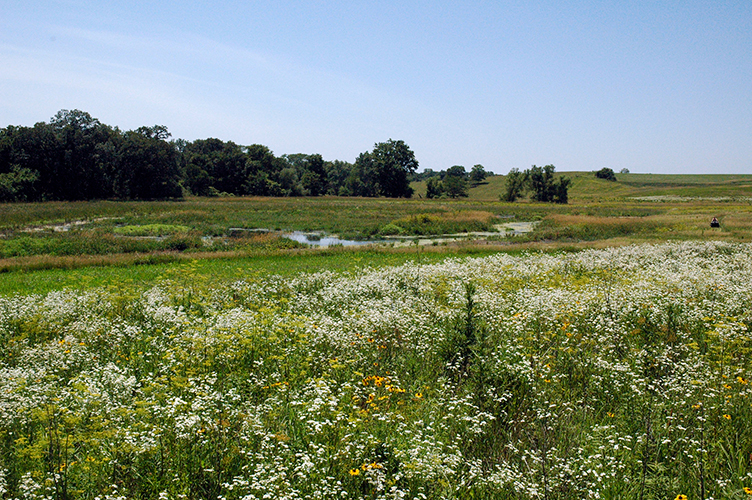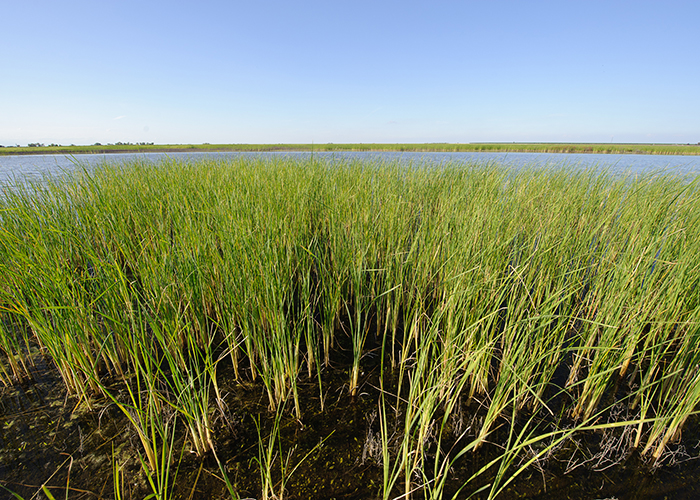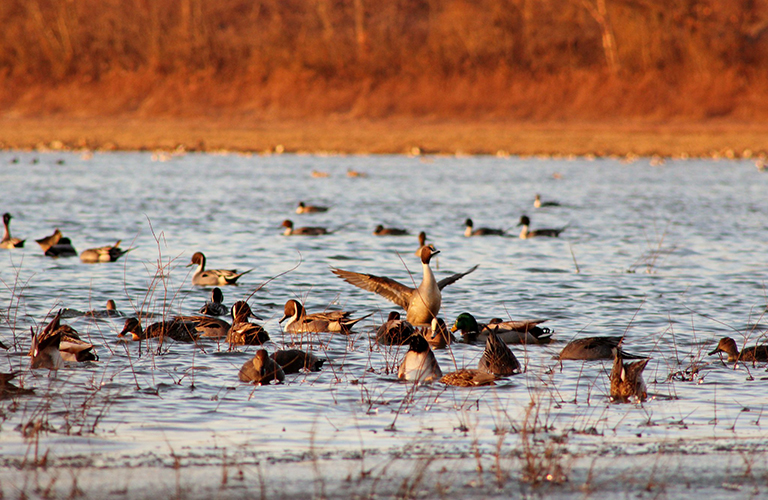Source: By Jocelyn Benjamin, USDA | May 14, 2019..
Wetlands are among the most productive systems in the world. They filter nutrients, reduce flood risks, store carbon, provide critical habitat for wildlife, and contribute to the local economy. This Wetlands Month, we celebrate and explore the many services provided by wetlands and the resources available to farmers and ranchers interested in supporting wetlands on their operations.

Here’s a look at five services wetlands offer your land, your environment, and your community:
1. Filtered Nutrients
Just as kidneys filter toxins from the body, wetlands naturally filter sediments and excess nutrients – like nitrogen and phosphorus – from the landscape. As water flows through a wetland, sediment settles on the wetland floor and is held by wetland plants, which also add oxygen to the water and absorb excess nutrients for growth. When plant roots and stems absorb excess nutrients, it prevents them from entering downstream environments. The cleansing power of wetlands support clean drinking water for local communities, improves water quality in nearby rivers and streams, and supports plants and animals.
2. Reduced Flood Risks
Floods can be overwhelming and costly, but wetlands can play a vital role in reducing the intensity and rate of flooding. Wetlands act like sponges that trap water for a slower release of groundwater, surface water, snowmelt, and flood water. The small trees, grasses, shrubs, and other wetland plants help brake the speed of floodwaters and slows the waters flow over the land. This water storage service helps control flooding in nearby communities, reduces erosion, and prevents water logging of crops.

3. Stored Carbon
Carbon dioxide is one of the leading greenhouse gases contributing to extreme weather events, which lead to uncertainties for farmers and ranchers attempting to mitigate weather-related challenges for their working land. Healthy wetlands sequester carbon by removing carbon dioxide from the atmosphere and storing it in plants and soil. Wetlands form the largest carbon pool of any North American ecosystem. Landowners are using conservation practices on their operations to improve their soil’s capture of carbon, including practices like no-till that build soil health. Farmers and ranchers interested in carbon sequestration can also support wetlands across their operation.
4. Wildlife Habitat
Wetlands are home to many wildlife species, such as migratory and resident birds, reptiles and amphibians, fish, insects, and plants. More than one third of threatened and endangered species live in wetlands and some need wetlands to breed. Wildlife like deer and turkey use wetlands and nearby upland habitat for forage and cover. Planting grasses, forbs, shrubs, and trees can provide suitable habitat for wildlife on local wetlands. These landscapes not only support wildlife habitat but also offers access to economic opportunities for landowners.

5. Diversified Economic Portfolio
Wetlands offer many opportunities for outdoor recreation and education. More than 98 million people in the United States hunt, fish, bird-watch, or photograph wildlife supported by wetland ecosystems. Landowners are diversifying their income by using their land to host recreational activities like hunting or supporting environmental education and hands-on experiences. Nationwide, it is estimated that hunters spend about $145 billion on travel, equipment, and other associated expenses, creating an economic engine fueled partly by healthy wetlands.
Landowners are working with USDA’s Natural Resources Conservation Service to restore, protect, and enhance the nation’s wetlands. By sustaining wetland ecosystems, we can continue to benefit from the many services they provide to our environment, our communities, our economy, and our wildlife.
Contact your local service center to learn more about USDA resources and programs to restore wetland ecosystems on your working land.
